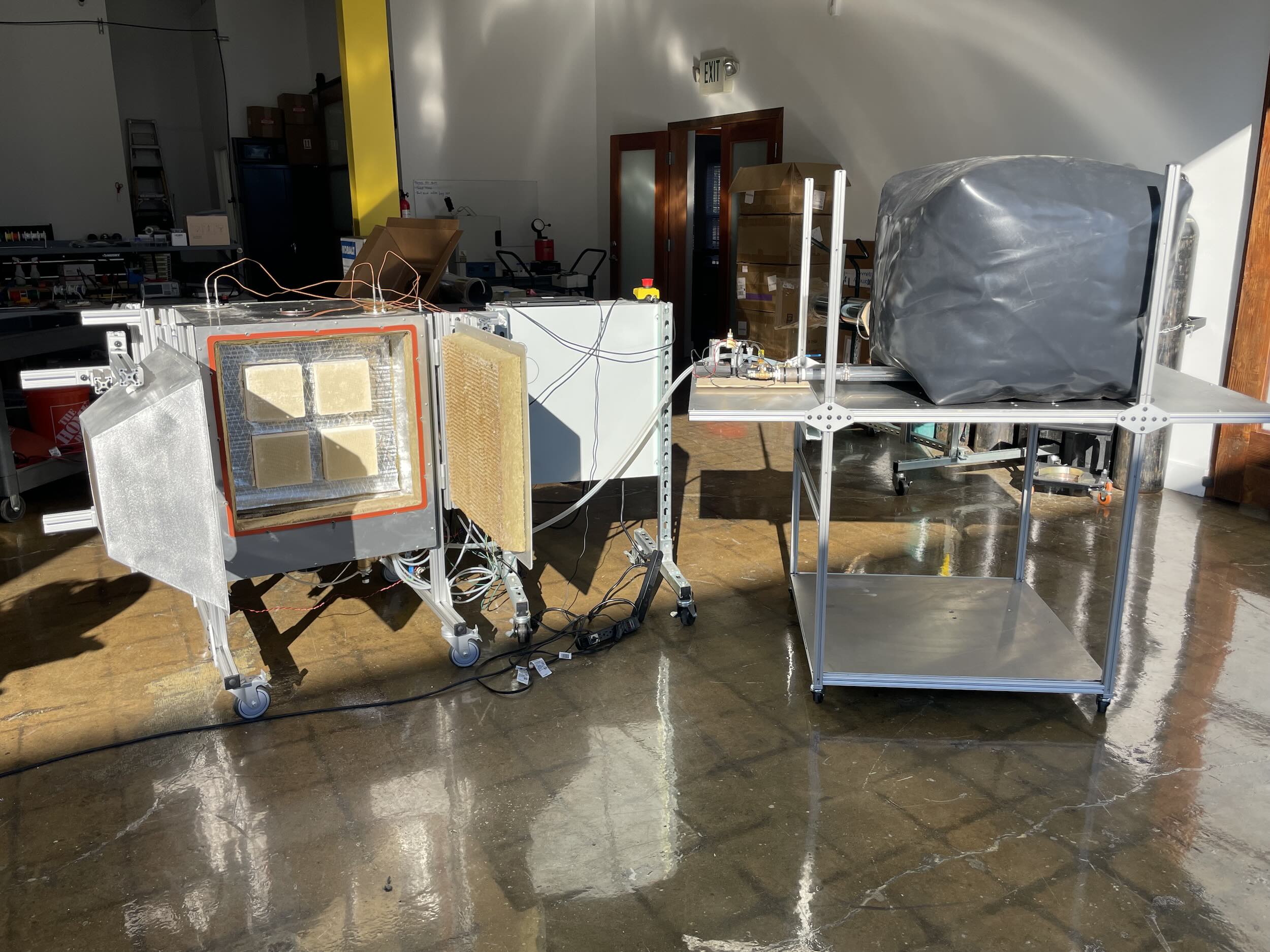The 80/20 rule. Diminishing returns. The “good enough” principle. Sometimes, striving for perfection just isn’t worth it. At least, that’s what Glen Meyerowitz thinks.
An engineer by training, Meyerowitz leans heavily on that concept at Clairity Technology, the direct air capture startup he founded in 2022. Most other carbon capture companies try to squeeze nearly all the juice from the lemon, saturating their sorbent materials with enough CO2 that the end result is an almost entirely pure stream of the gas. Meyerowitz finds it overkill.
“Most folks out there, pretty much everyone else that we’re familiar with, is looking to generate these high-purity CO2 streams, 99-plus-percent pure. That matches, historically, what we as a species have generated, but there doesn’t seem to be a great reason beyond that,” he told TechCrunch.
Clairity recently raised a $6.75 million seed round that was led by Initialized Capital and Lowercarbon Capital, TechCrunch has exclusively learned. The company is currently working on the next size up, which should be able to capture one metric ton per year. By the end of the year, Meyerowitz expects the company will be deploying a pilot plant capable of 100x more.
Because the end result is considered low purity, Clairity says it can design with lower precision in mind, saving costs.
Clairity is one of the latest entrants into the direct air capture (DAC) market, where companies compete to remove carbon dioxide from the atmosphere at the lowest cost. That might sound simple, but recall that CO2 only makes up 0.042% of the air we breathe. It’s like plucking a needle from a haystack.
Yet there’s widespread acknowledgment that we’ll need some form of direct air capture if we’re to rein in carbon dioxide levels and avoid the worst consequences of climate change.
Today, DAC is unreasonably expensive, ranging from $600 to $1,000 per metric ton of CO2, up to an order of magnitude more than experts anticipate the market will sustain. Some of that is because the technology is nascent and economies of scale have yet to kick in, but Meyerowitz believes that a quest for purity might also be at play.
He and his team, now eight strong, have designed a box that’s “good enough” to capture carbon dioxide over 80% purity, he said. What it can’t do is get to 99.9% pure, and that’s intentional.

“If we can build and scale direct air capture that’s closer to, like, how you build an apartment building, for instance, we think we can dramatically reduce the cost of the entire system,” he said.
The impurities in Clairity’s gas stream aren’t anything that isn’t already present in the atmosphere. The result is a product that’s not suitable for every application, but is for many.
“There’s a huge opportunity to utilize CO2 in value-added products for things that can still have a very positive impact on the climate,” Meyerowitz said.
Concrete is one. By using carbon dioxide as an ingredient, “it improves the quality of the concrete. You get better material properties, better strength, and you need to use less of it for a given application,” he said. The company recently worked with another startup, CarbonBuilt, to create a concrete block using 28 grams of CO2 captured using Clairity’s box, which is about the size of a dorm fridge and capable of processing about 100 kilograms per year.
Plus, it can use cheaper sorbent materials. The ones that coat the ceramic honeycomb currently inside its box are alkali carbonates like sodium carbonate or potassium carbonate, both ingredients in baking soda and widely available. “I could go today and buy, like, a million metric tons of it and get it delivered,” Meyerowitz said.
Eventually, the company will have to build several large facilities if it wants to have any impact. The plan is to replicate the components in a modular fashion. Once it’s capturing a large amount of CO2, Clairity will either sell companies its gas stream and let them claim the carbon credits or sell the gas alone and keep the credits to itself. “I expect it to vary from project to project,” Meyerowitz said.
Like most DAC startups, the biggest challenge Clairity faces is cost and finding customers who are willing to shoulder some of the burden. Today, a handful of companies have stepped up, paying a premium for carbon credits generated by DAC. The hope is that they’ll help promising startups across the valley of death. The Inflation Reduction Act will also pitch in to the tune of $130 per metric ton for carbon that’s used in products and $180 per ton if that carbon is permanently sequestered somewhere (typically underground).
DAC is an energy-intensive operation, and Meyerowitz said that his company’s technology will probably use the same amount of energy as its competitors. If that part of the playing field is level, then Clairity’s cap-ex advantage could be, well, advantageous.































Comment